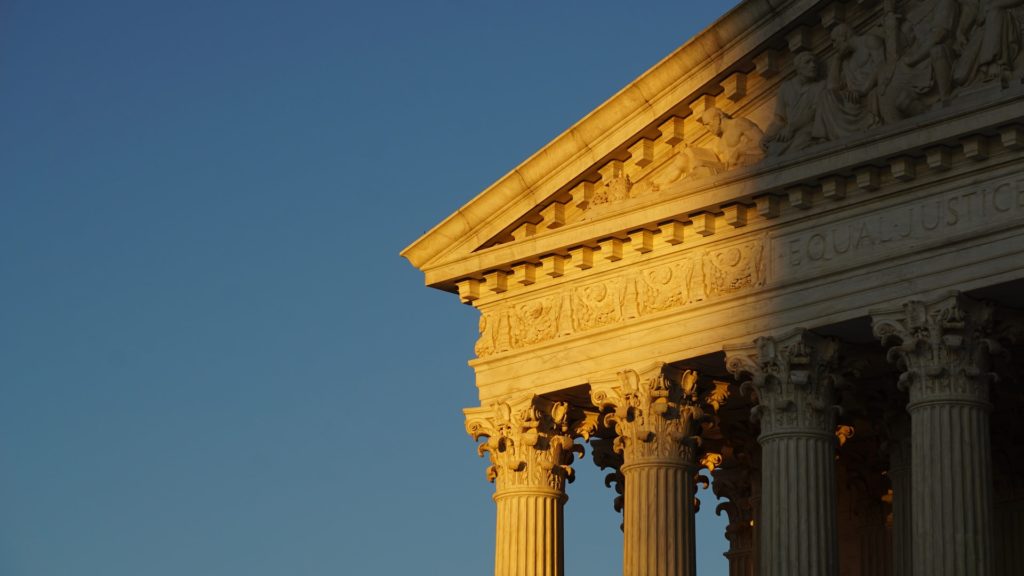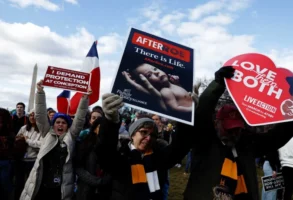
Published August 25, 2021
In May, the Supreme Court agreed to hear Dobbs v. Jackson Women’s Health Organization, the biggest case concerning abortion regulations to come before the justices in three decades. The last time the Court had such a significant opportunity to revisit its holding in Roe v. Wade was the 1992 case Planned Parenthood v. Casey, in which a majority affirmed Roe and created a new “undue burden” standard for reviewing state-level abortion restrictions.
The Court has yet to schedule oral arguments in Dobbs, but a ruling is expected late next summer, at the end of the coming term. The case, which concerns a Mississippi law that prohibits abortion after 15 weeks’ gestation, is the Court’s first chance since Casey to reconsider its flawed abortion jurisprudence: In agreeing to hear the case, the justices said they would consider “whether all pre-viability prohibitions on elective abortions are unconstitutional.”
The statute at issue in Dobbs is Mississippi’s Gestational Age Act, which prohibits nearly all abortions after 15 weeks, with exceptions for cases of a medical emergency or severe fetal abnormality. The law was first enacted in 2018, and immediately challenged by Jackson Women’s Health Organization, the only licensed abortion provider in the state.
The case first landed in a federal district court, which sided with the abortion clinic, ruling that existing jurisprudence does not allow states to enact any ban on abortion prior to fetal viability. The Fifth Circuit Court of Appeals then upheld that decision, holding that, under Casey, “no state interest can justify a pre-viability abortion ban,” and that, because 15 weeks’ gestation is before fetal viability, the statute “undisputedly prevents the abortions of some non-viable fetuses.”
Appealing the Fifth Circuit’s decision to the Supreme Court, Mississippi asked the justices to consider three questions: First, whether all pre-viability prohibitions on abortion are unconstitutional; second, whether the Casey “undue burden” standard or the “balancing test” established in Whole Women’s Health v. Hellerstedt (2016) governs the Court’s understanding of abortion regulations; and third, whether abortion providers have third-party standing to challenge abortion regulations on behalf of women.
As Mississippi’s petition was filed before the Court ruled in last summer’s June Medical v. Russo, the second question predated Chief Justice John Roberts’s confusing attempt to apply Whole Woman’s Health to the holding in that case, which struck down a Louisiana law requiring doctors who perform abortions to have admitting privileges at a state-approved hospital within 30 miles of the abortion clinic where they practice. And when it agreed to hear Dobbs, the Court said it would consider only the first question.
As many observers have noted, the facts of the case make it a unique opportunity to strike directly at the heart of Roe and Casey. Because the justices are considering the constitutionality of a pre-viability abortion regulation, they will have a difficult time concocting a middle-ground decision of the sort we have come to expect from the Court in abortion cases.
Because of the rationales that underpin the Roe and Casey decisions, it would be nearly impossible for the justices to affirm Mississippi’s law without doing significant damage to the Court’s holdings in those prior cases. As a result, their ruling in Dobbs most likely will have to either strike down much of the Court’s previous abortion jurisprudence or find that all pre-viability restrictions on abortion are unconstitutional.
In its brief to the Supreme Court filed last month, Mississippi maintains the argument that the state made before the Fifth Circuit — that the Gestational Age Act is permissible even under Casey’s framework — but also targets the central holdings in Roe and Casey, arguing at length that the Court must overturn them both.
“If this Court does not overrule Roe and Casey’s heightened-scrutiny regime outright, it should at minimum hold that there is no pre-viability barrier to state prohibitions on abortion and uphold Mississippi’s law,” the state’s brief asserts. It is backed by 80 pro-life amicus briefs, nearly all of which insist that the justices must confront and undo the last five decades of unworkable jurisprudence created by Roe and extended by Casey, and a handful of which go even farther, arguing that unborn children are protected as “persons” under the Fourteenth Amendment, and that all legal abortion is thus unconstitutional.
Whether or not one finds those arguments convincing, it is indisputable that the pro-life movement has been urging the Court to remake its abortion jurisprudence, root and branch, for decades. And in Dobbs, Mississippi has offered the justices a prime opportunity to do just that.
Alexandra DeSanctis is a staff writer for National Review and a visiting fellow at the Ethics and Public Policy Center.
EPPC Fellow Alexandra DeSanctis writes on culture and family issues, with a particular focus on abortion policy and pro-life advocacy, as a member of the Life and Family Initiative.








